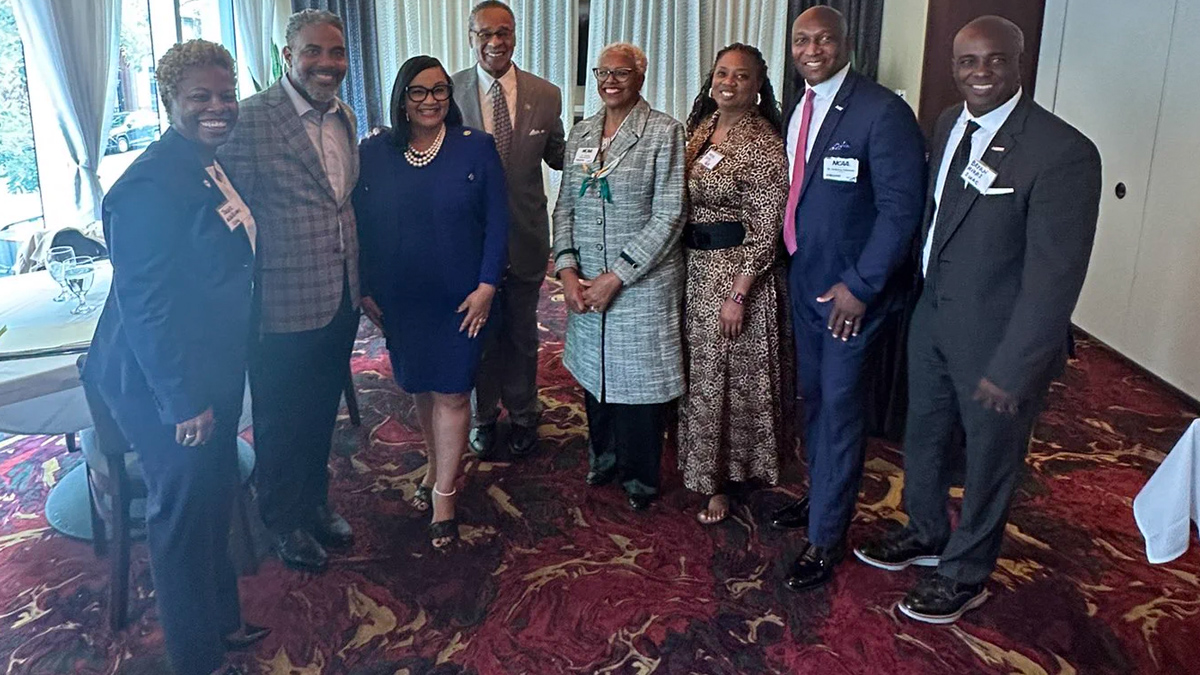The four commissioners of the NCAA’s HBCU conferences announced plans to work closer together earlier this year.
Last week the commissioners of the CIAA, SIAC, MEAC and SWAC got together to petition members of Congress to pass legislation that would help create a level-playing field for HBCU athletes with regard to NIL (Name, Image and Likeness) legislation.
The letter reads as follows:
The Four Historically Black Athletic Conferences (4HBAC) represent America’s Historically Black Colleges & Universities (HBCUs) college sports programs. We are members of the National Collegiate Athletic Association (NCAA) representing Division I and Division II institutions. Our four conferences – the Central Intercollegiate Athletic Conference, Mid-Eastern Athletic Conference, Southern Intercollegiate Athletic Conference, and Southwestern Athletic Conference – include 48 schools, have a footprint across nearly 20 states, serve nearly 15,000 student-athletes, and bring together millions of HBCU alumni, fans, and communities annually in celebrating our rich history and traditions.
Our schools provide developmental, intellectual, and social experiences as well as stability for our students, which in turn leads to academic, athletic and ultimately post-graduate success. In most cases, HBCU student-athletes are first generation college students, and it is through their participation in sports and competition that we celebrate and recognize that 4HBAC student-athletes graduate at a higher rate than their non-athlete peers and they traditionally lead in federal graduation rates for both student body and student-athletes.
Increasingly, HBCU and college sports fans across the country are excited about what’s happening on our campuses and on our athletic fields and, in several cases, we are outpacing our predominantly white institution peers in attendance and viewership. As a result, there is a recent rise in corporate sponsorships, destination contests offers and most importantly prominent media prospects.
With the ever-changing climate of intercollegiate athletics, these increased opportunities for our predominantly Black students are at risk. Pending regulatory decisions and plaintiffs’ attorneys threaten to change the face of college sports without our voices, and more importantly without the voices of the student-athletes being considered. Additionally, there is a growing patchwork of state laws impacting college sports and creating disparities and confusion among our student-athletes. The laws have made it difficult for the 4HBAC to manage and support member institutions and student-athletes. In other cases, it has also become a challenge to retain our HBCU student-athlete population due to the differences in laws instituted from state to state.

Like the majority of our Division II and mid-major peers, most HBCUs do not generate significant revenue and rely heavily on school appropriated funds and donations. Therefore, classifying student-athletes as employees would have a staggering impact on our athletic programs and schools.
There is no question college sports have been too slow to change, but thanks in part to the voices of many HBCU leaders, college sports are transforming. The NCAA now funds sports injury health coverage for all college athletes, extending up to two years after graduation, and all DI schools must offer health and wellbeing benefits as well as scholarship protections – long after graduation. We enthusiastically support our student-athletes profiting from their name, image and likeness (NIL).
To protect all that we have accomplished on our HBCU campuses, we ask for your support in passing laws that, when necessary, pre-empt state law, to create clear and fair playing fields for HBCU student-athletes.
Such legislation will allow for consistent and nimble national governance with consumer protections. Most importantly, we seek special status for student-athletes to ensure they are not designated as employees of their institutions.
We look forward to partnering with each of you and serving as a resource on this important issue. Do not hesitate to contact us directly.
The letter is signed by all four conference commissioners.
